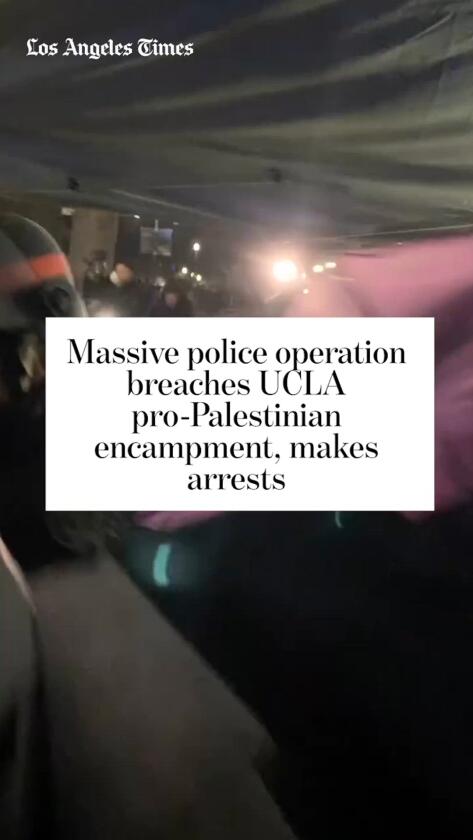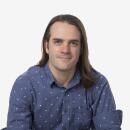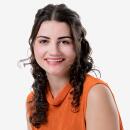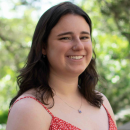
More than 200 people were arrested Thursday morning as police moved into the pro-Palestinian encampment at UCLA, dismantling tents and pushing out protesters in a clash that lasted hours.
The operation capped two days of upheaval on the Westwood campus that began when UCLA declared the encampment “unlawful” and continued when a group of pro-Israel counterprotesters attacked the camp Tuesday night, with police taking hours to stop the violence.
Early Thursday morning, officers wearing body armor, helmets and face shields methodically pulled apart the barricade as protesters tried to hold together the assemblage of plywood and metal fencing. Police launched flares that arced over the encampment, igniting with piercing blasts, and smoke filled the air from fire extinguishers that demonstrators sprayed at police. At least one officer is seen on video shooting rubber bullets into the crowd.
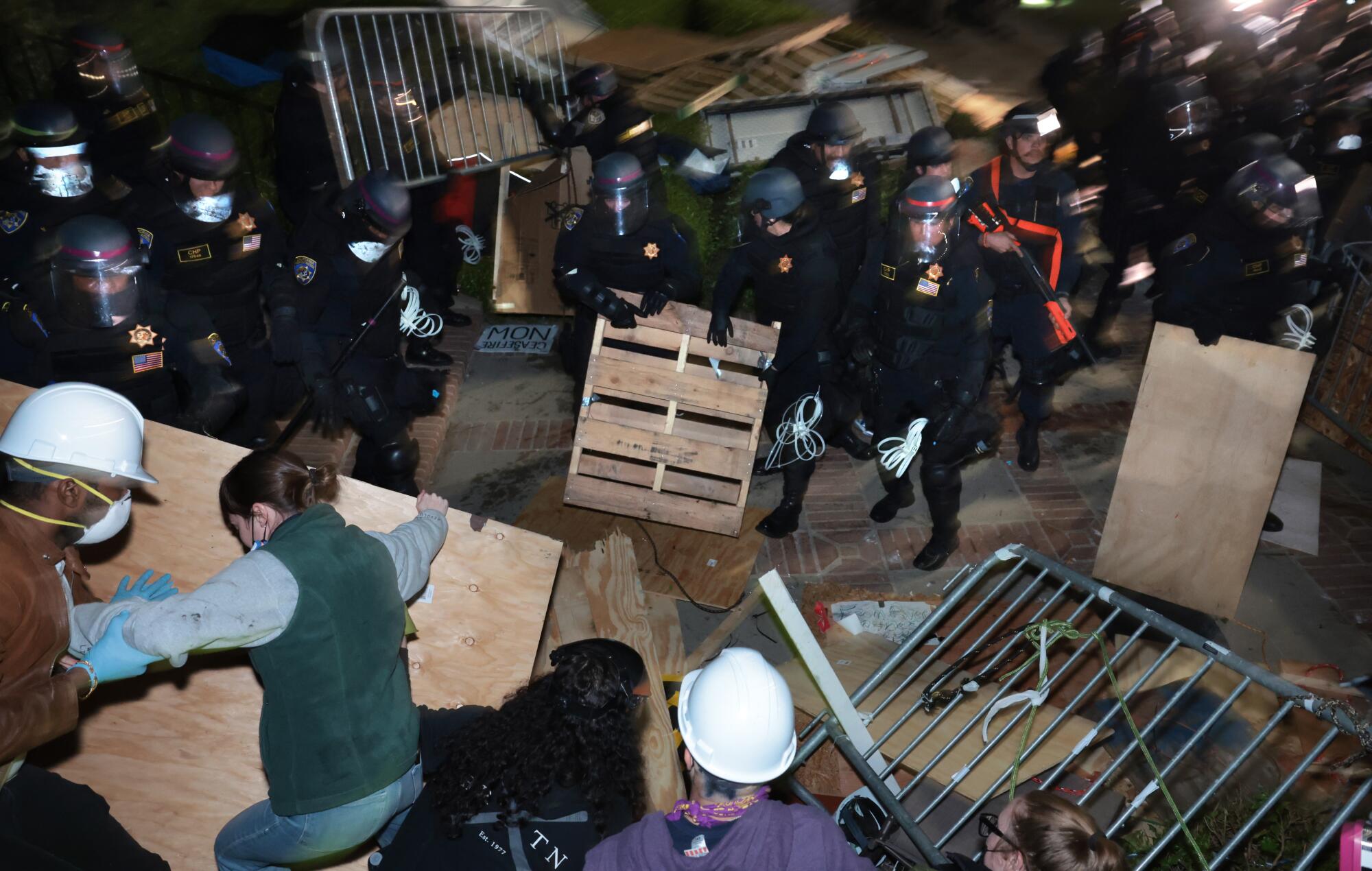
Many protesters left on their own, but others were arrested. Los Angeles Police Department officials said 209 people were taken into custody. Many were booked on suspicion of failing to disperse, a misdemeanor, a law enforcement source told The Times.
By mid-morning, students, staff and other protesters had begun trickling out of the jail in downtown Los Angeles, carrying plastic bags filled with their belongings and yellow citations.
As they left the jail one by one, they were greeted by cheers from students and legal advocates across the street. Many chanted, “Free Palestine,” as they emerged from the building.
Ella, a UCLA sophomore who declined to give her last name out of fear of retaliation from the university, said it had been an exhausting and disappointing night.
“It’s nothing compared to what the kids in Gaza are going through,” she said.
UCLA Chancellor Gene Block said in a statement Thursday the community is in “deep pain.” The university’s approach to the encampment was guided by the desire to support students, free expression and to minimize disruption, Block wrote.
“We had allowed it to remain in place so long as it did not jeopardize Bruins’ safety or harm our ability to carry out our mission,” Block wrote. “But while many of the protesters at the encampment remained peaceful, ultimately, the site became a focal point for serious violence as well as a huge disruption to our campus.”
Thursday morning, the last vestiges of the encampment were swept away by workers. Crews picked up trash strewn across the lawn. Tents were upended, and nearby buildings had been spray-painted with words in support of Gaza. Bulldozers rolled onto the campus to clean up debris, and workers placed tents, chairs, food and other supplies into large trash bins.
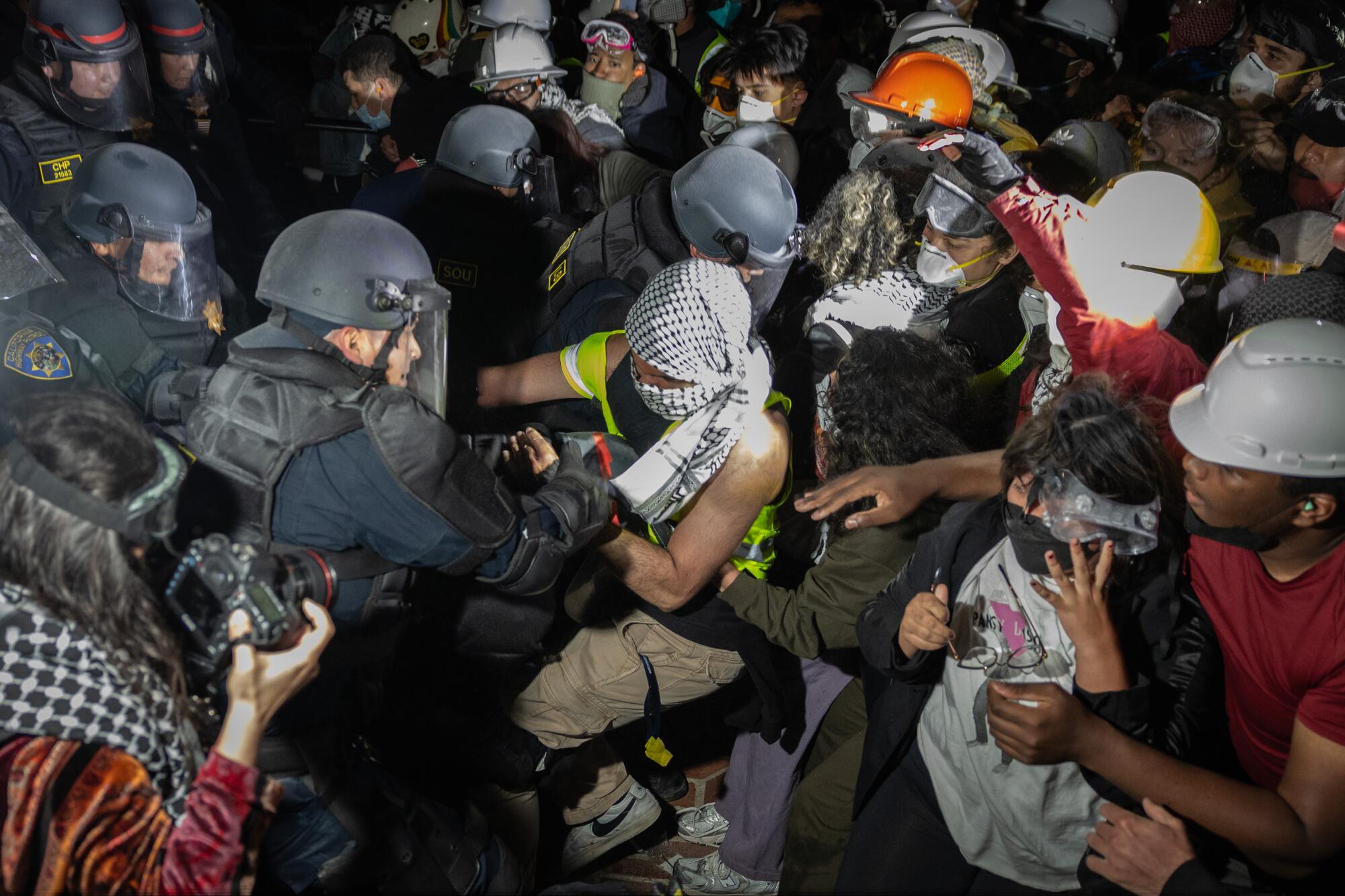
In recent weeks, UCLA, like other universities across the country, has emerged as a hotbed of pro-Palestinian activism.
Students, faculty and staff have erected makeshift camps and demanded an end to Israel’s war in the Gaza Strip and that their universities divest from companies that sell weapons or services to Israel.
The future of the protest on the UCLA campus remains unknown. The university has moved all classes online for the rest of the week. Some protesters leaving jail said they planned to return to campus as early as Thursday evening.
“We’re definitely not done,” said one woman, carrying a carton of orange juice and pumping her fist as she walked out. “I’ve never felt more proud of myself.”
Others said they were exhausted by the events of the past two days.
Police began arriving in significant numbers to break up the encampment early Wednesday evening, and students lined up arm in arm in an effort to prevent law enforcement from reaching the area.
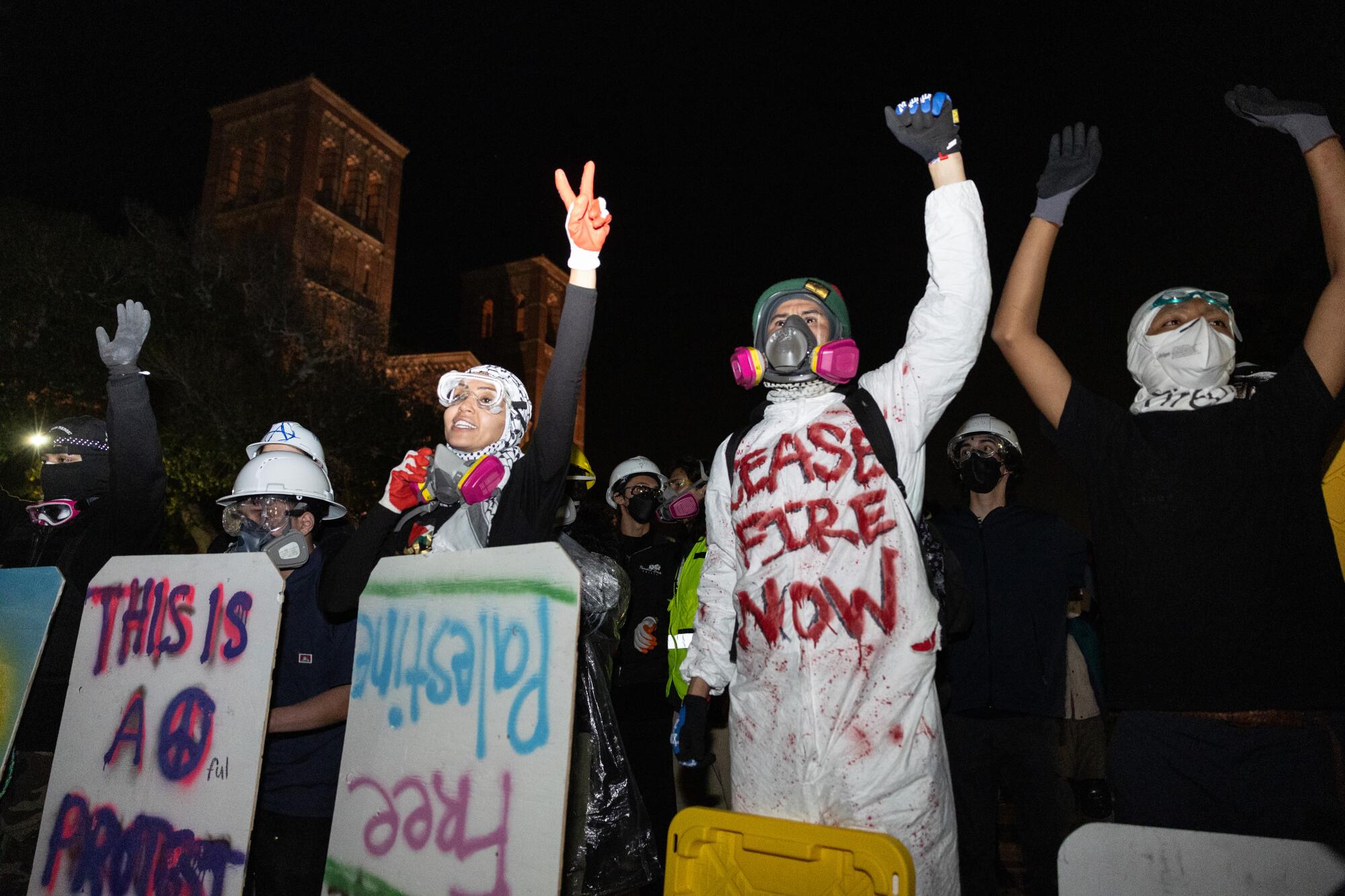
UCLA police repeatedly announced over loudspeakers that protesters should clear the area “immediately” and that those who failed to do so would be subject to arrest.
There were several fronts to law enforcement’s pre-dawn operation, with police using flash-bang devices that echoed across campus and disoriented the crowd. Other officers watched from the high windows of Royce Hall, infuriating protesters who shone lights in their eyes and challenged them to come down.
Meanwhile, in the road across from the encampment, dozens of pro-Palestinian protesters flowed into the driving lanes in front of Dickson Plaza, chanting, “From the river to the sea, Palestine will be free.”
Photos: Clashes erupt at pro-Palestinian demonstrations on California campuses
A man was struck in the chest with a rubber bullet after California Highway Patrol officers told protesters to stop throwing boards and other objects at them. It is not clear whether the man was throwing anything or how many others were injured. One officer suffered an eye injury, authorities said.
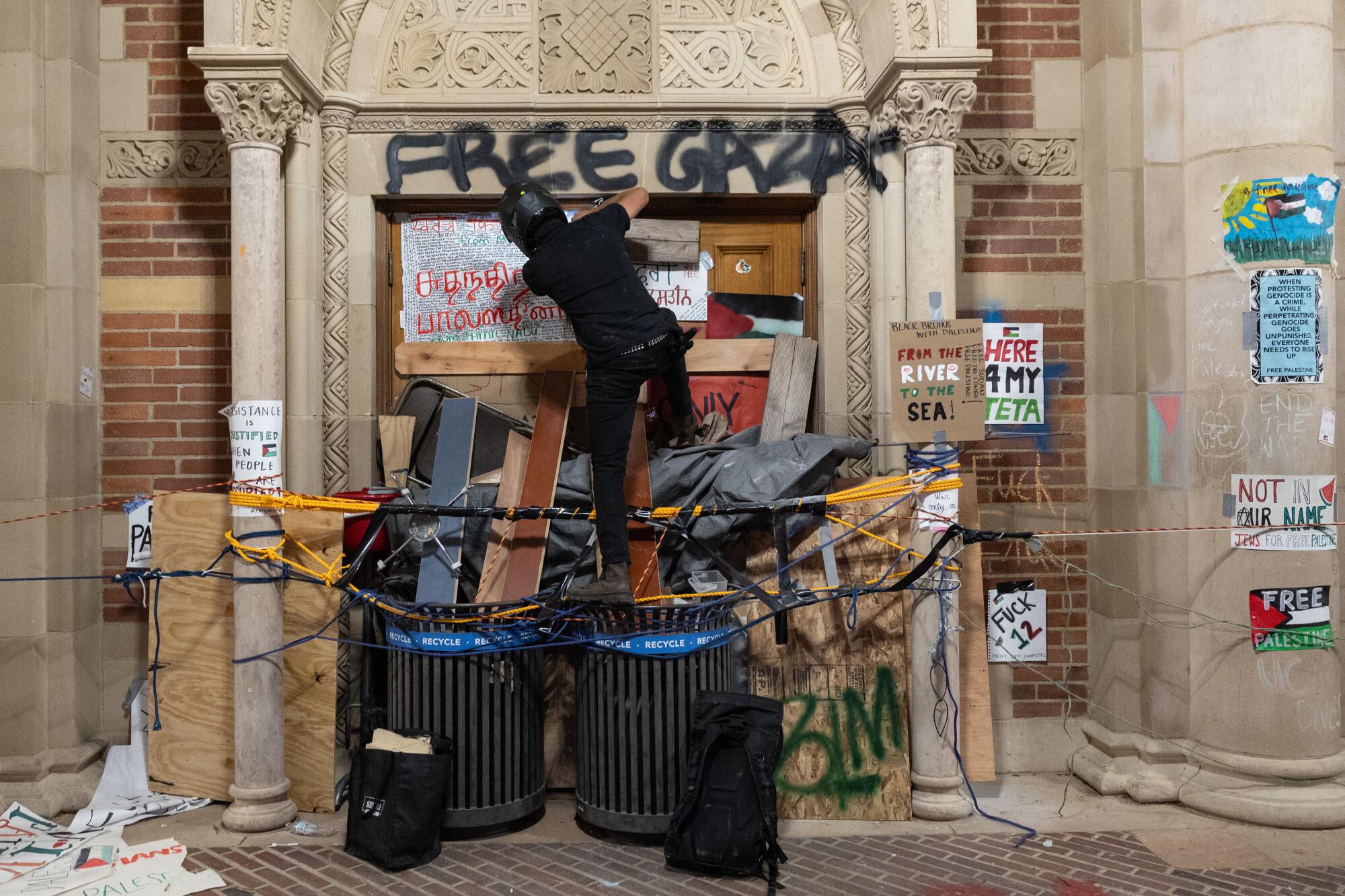
Yaas Farzanefar, a 23-year-old UC Berkeley alum, said she watched many faculty members get arrested first — including a neurogenetics professor — followed by her and her friend.
It is not clear how many of those arrested are UCLA students and whether they will face academic repercussions for their participation in the encampment. The university did not respond to a request for comment.
Four Occidental College students were also taken into custody at UCLA, according to Matthew Vickers, a member of the Occidental chapter of Students for Justice in Palestine.
Fears among college students triggered by the Israeli-Palestinian conflict have skyrocketed, with a new national study showing that 3 million students said they feared for their safety, including the majority who are Jewish and Muslim.
The encampments at other California universities, including UC Irvine and UC Riverside, are continuing.
President Biden on Thursday addressed the ongoing protests on college campuses, saying that while he understands Americans have strong feelings, “it doesn’t mean anything goes.”
“Vandalism, trespassing, breaking windows, shutting down campuses, forcing the cancellation of classes and graduations — none of this is peaceful protest,” Biden said. “Dissent is essential to democracy, but dissent must never lead to disorder or to denying the rights of others so students can finish the semester and their college education.”
He reiterated that discrimination should never be tolerated.
“There is no place for hate speech or violence of any kind, whether it’s antisemitism, Islamophobia or discrimination against Arab Americans or Palestinian Americans. It’s simply wrong,” he said.
A day earlier, violence erupted on UCLA’s campus after a group of pro-Israeli counterprotesters attacked the camp, hurling racial epithets and attempting to rip down barricades surrounding the encampment. The situation heightened concerns and criticism about the university’s handling of the protests over the Gaza war.
Citing “sufficient confusion” surrounding the events, UC President Michael V. Drake said he was ordering an independent review of the university’s actions and the response by law enforcement.
Assemblymember Rick Chavez Zbur (D-Los Angeles), whose district includes the UCLA campus, sent a letter to the U.S. Department of Education’s Office for Civil Rights requesting an investigation into potential violations of the Civil Rights Act of 1964.
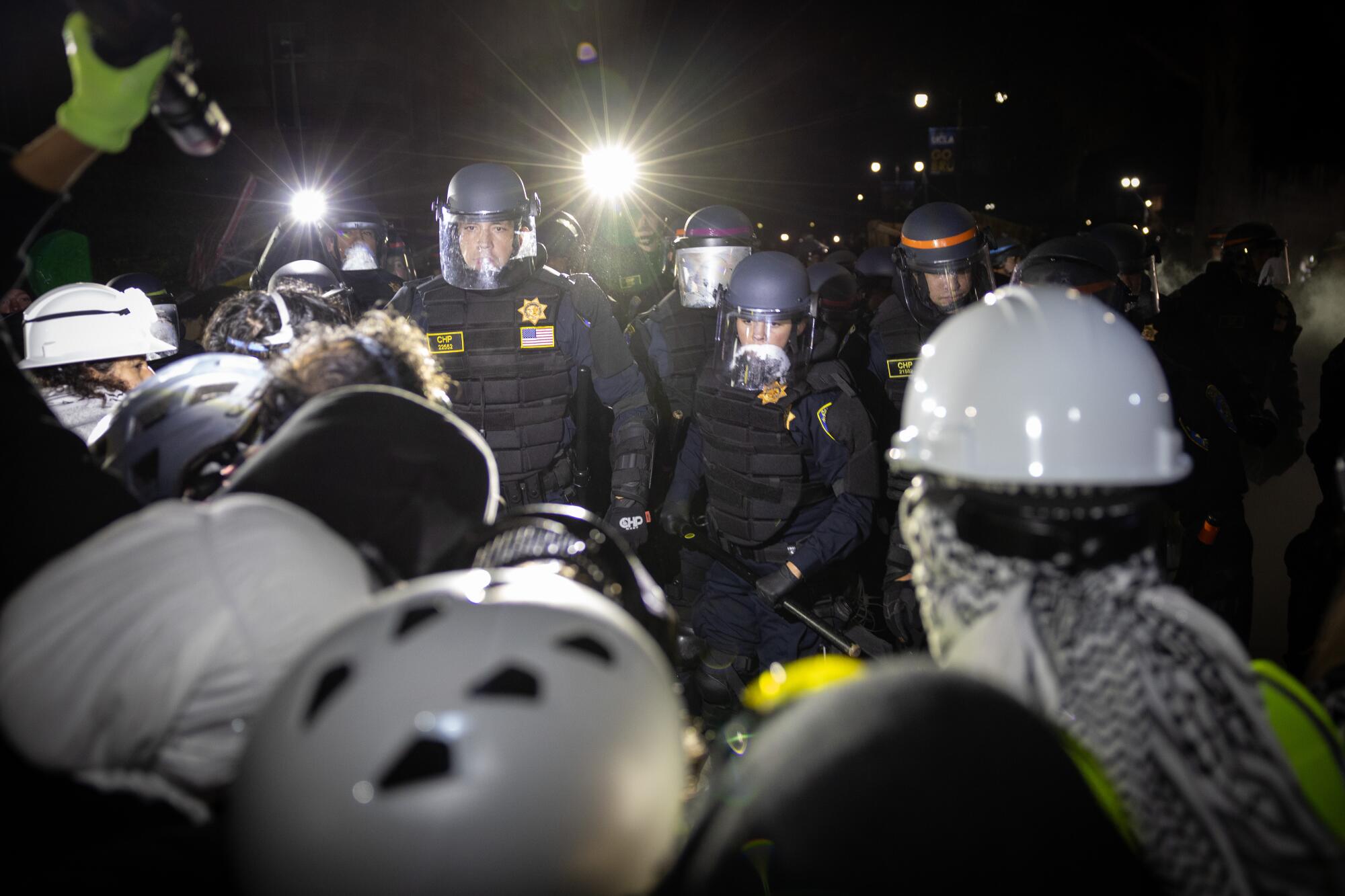
“On all accounts, UCLA has failed to uphold its most important responsibility, which is to protect the safety, well-being and civil rights of all of its students,” Zbur wrote.
UCLA faculty on Wednesday circulated a letter with about 360 signatures to Block demanding no police or disciplinary actions be taken against students.
Garrett Miller, president of the union representing the L.A. County public defender’s office, called on the district attorney and city attorney to decline filing criminal charges against the protesters.
“What happened last night at UCLA is absolutely shameful and a complete failure of leadership,” Miller said in a statement. “Police officers wearing body armor, helmets and face shields deployed flash-bang grenades, rubber bullets and batons against student protesters. We will always support the right to protest. We will always condemn the use of police violence and mass arrests to suppress free speech.”
Los Angeles Mayor Karen Bass, who was at the incident command post at UCLA overnight, said that “every student deserves to be safe and live peacefully on their campus.”
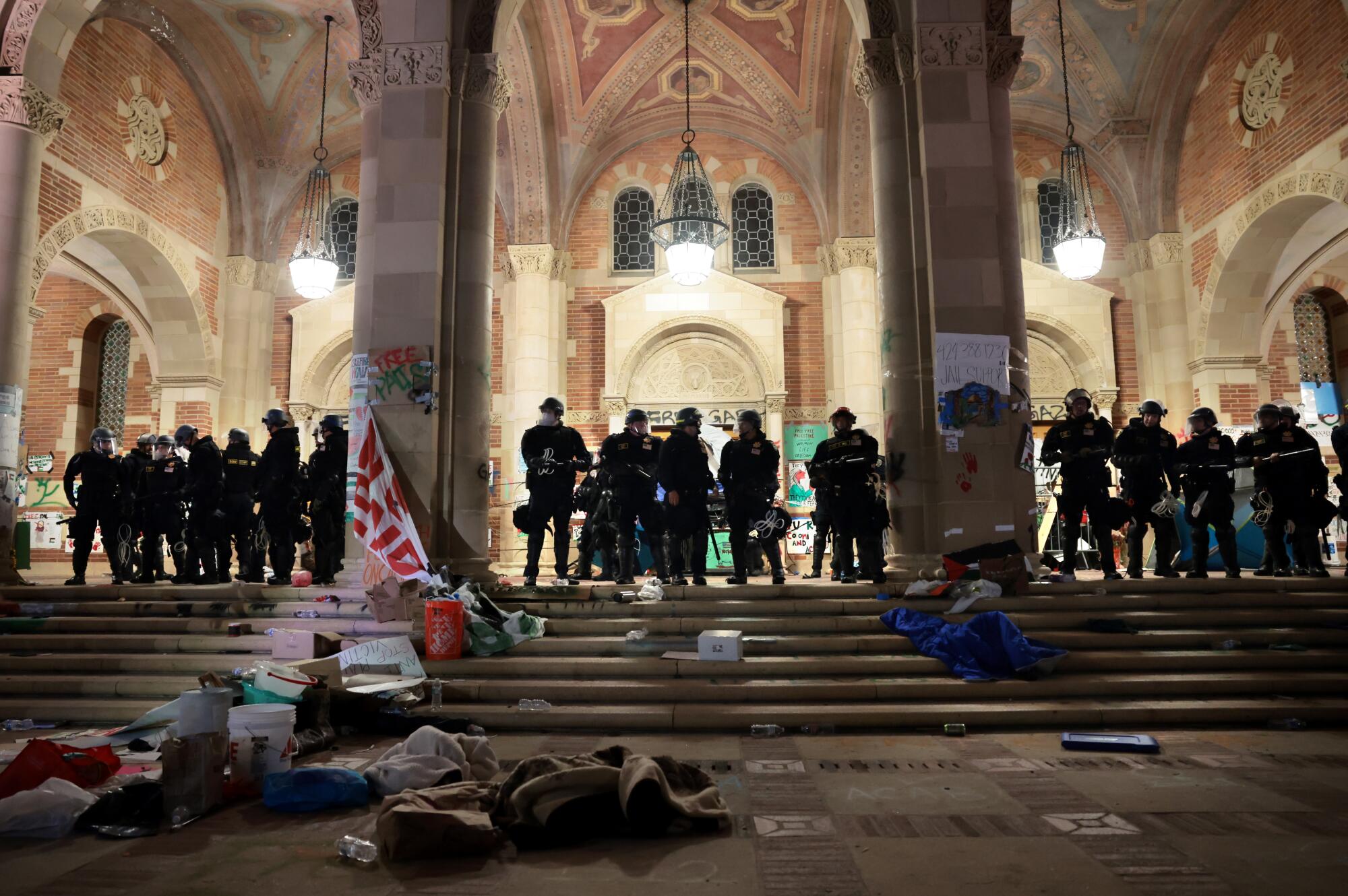
“Harassment, vandalism and violence have no place at UCLA or anywhere in our city,” she said. “My office will continue to coordinate closely with local and state law enforcement, area universities and community leaders to keep campuses safe and peaceful.”
A 20-year-old UCLA undergrad, who is Jewish and requested anonymity because he fears being attacked, said he participated in the counterprotest Sunday, but condemned the violence against the encampment Tuesday night.
He said he’s parted ways with a lot of friends since the war began because of differing opinions.
“It’s unfortunate because for me, this is quite personal because I am from the Middle East, I have family in Israel, I have family in Iran and seeing the chaos break out in the region where my ancestry is from, it’s cutting to see individuals who have no connection to the ongoing violence say that I don’t know what I’m talking about or they can’t be friends with me because of their political stance,” he said.
Some protesters worry the momentum of the pro-Palestinian demonstration may have stalled with the encampment gone. The logistics of the next several days, they said, were murky.
“There’s a lot of anger and frustration and desire to keep protesting, but we’re really still figuring out what that would look like,” a 19-year-old UCLA freshman, who declined to give her name, told The Times.
Times staff writer Ashley Ahn and staff photographer Jason Armond contributed to this report.
More to Read
Sign up for Essential California
The most important California stories and recommendations in your inbox every morning.
You may occasionally receive promotional content from the Los Angeles Times.


